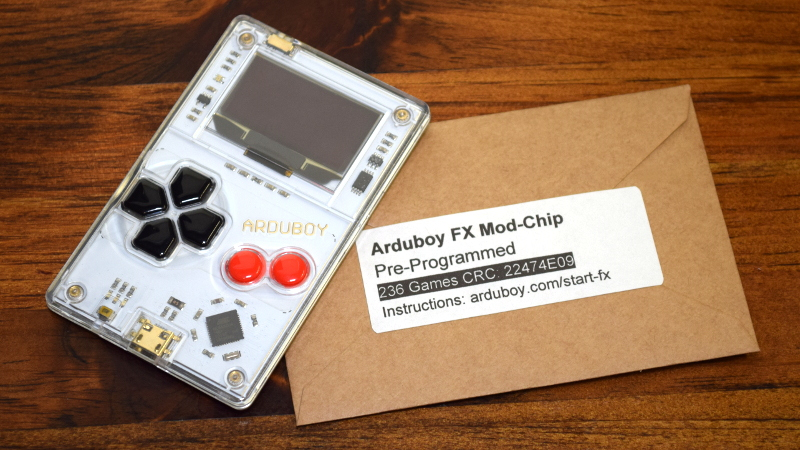Traditionally, a forum full of technical users trying integrate their own hardware into a game system for the purposes of gaining unfettered access to its entire software library was the kind of thing that would keep engineers at Sony and Nintendo up at night. The development and proliferation of so called “mod chips” were an existential threat to companies that made their money selling video games, and as such, sniffing out these console hackers and keeping their findings from going public for as long as possible was a top priority.

But the Arduboy is no traditional game system. Its games are distributed for free, so a chip that allows users to cram hundreds of them onto the handheld at once isn’t some shady attempt to pull a fast one on the developers, it’s a substantial usability improvement over the stock hardware. So when Arduboy creator Kevin Bates found out about the grassroots effort to expand the system’s internal storage on the official forums, he didn’t try to put a stop to it. Instead, he asked how he could help make it a reality for as many Arduboy owners as possible.
Now, a little less than three years after forum member Mr.Blinky posted his initial concept for hanging an external SPI flash chip on the system’s test pads, the official Arduboy FX Mod-Chip has arrived. Whether you go the DIY route and build your own version or buy the ready-to-go module, one thing is for sure: it’s a must-have upgrade for the Arduboy that will completely change how you use the diminutive handheld.
FREEDOM OF CHOICE
Originally I was going to roll my own upgrade, which involves dead-bug soldering a SPI flash chip such as the W25Q128 to the Arduboy’s PCB with some thin wires and flashing the system’s ATmega32U4 microcontroller with a new bootloader using an ICSP like the USBasp. While it’s hardly a user-friendly operation, the procedure is well within the capabilities of the average Hackaday reader and potentially even something you can do with parts bin finds.
But in the end I decided to go with the pre-programmed FX Mod-Chip directly from Kevin. I’d been curious about the official upgrade since writing about it last year, and wanted to see what the top-of-the-line experience would be like. With a flexible PCB and an onboard ATtiny85 that can flash the system’s bootloader automatically, it’s a considerably more streamlined experience. Plus at just $15 USD, it’s hardly breaking the bank. Though if you want to save a few bucks, you can buy the blank version for $9 and load on your own games onto it.
In either event, the end result is the same. Rather than being stuck with a single game and having to connect your handheld up to the Arduino IDE each time you want to try out a new title, you’ll now have enough flash to store essentially the entire library of completed Arduboy games at once. You can quickly and easily navigate through them by genre using a very slick visual menu, and by holding the Up and Down keys simultaneously, you can even back out of the currently running game and select something else to play without having to power off the system.
Source: ARDUBOY FX MOD-CHIP: NOW YOU’RE PLAYING WITH POWER
